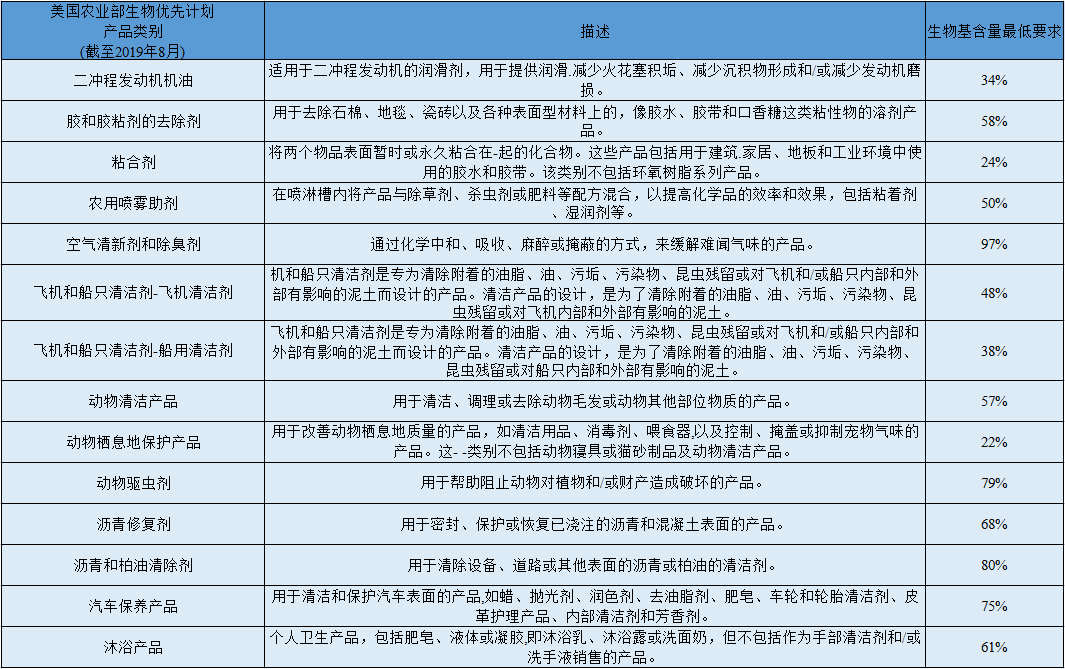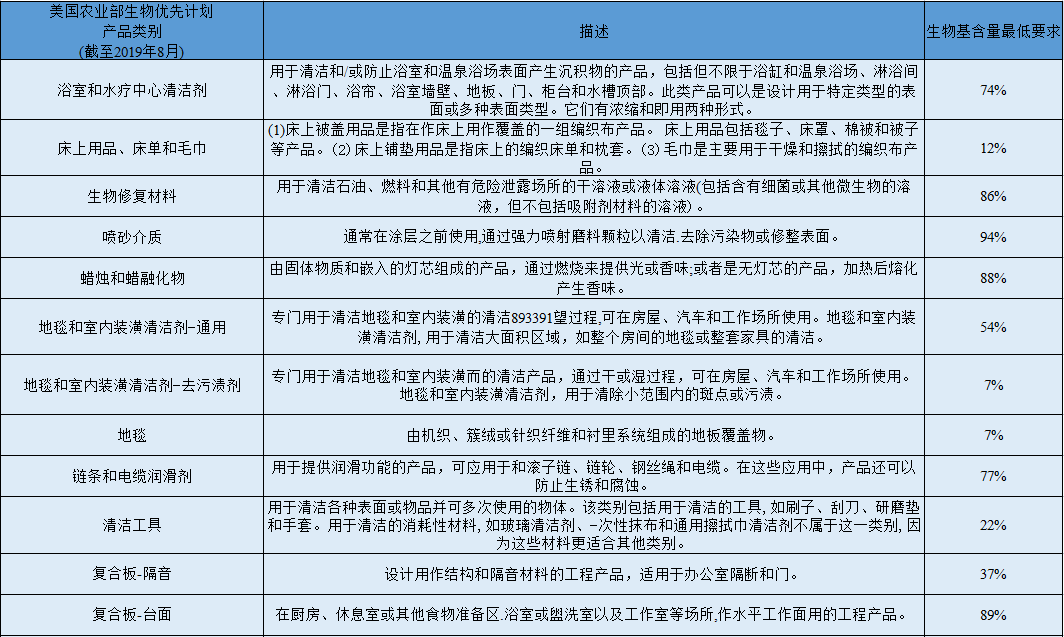飞凡检测致力于打造国内专业的第三方检测服务公司,不断优化整合市场检测资源,飞凡检测与多家科研院所,如上海同济大学,苏州大学,以及国内众多知名的检测公司进行深度合作,共同为国内制造业服务,为中国的制造业开拓海外市场保驾护航,为我们日常生活的健康安全树立标杆;公司目前工程师百余人,95%以上是本科以上学历;我们合作的实验室通过CNAS,CMA(EZ),所出具的任何一张报告都有CNAS,CMA资质,确保出具的每份报告都具有权威的法律效力。

Which products can apply for USDA certification

“Biobased product” means a product determined by USDA to be a commercial or industrial product (other than food or feed) that consists of.
(1) All or a substantial portion of a biobased product
(1) All or a substantial portion of a biological product, including renewable domestic agricultural materials, renewable chemicals, and forestry materials;
(2) Intermediate ingredients or raw materials.
Bio-based products are derived from raw materials such as plants and other renewable agricultural, marine and forestry materials. Bio-based products are often substitutes for traditional petroleum-derived products and include a wide range of products such as lubricants, detergents, inks, fertilizers and bioplastics. For the purposes of the BioReference Program, biobased products do not include food, animal feed or fuel. As part of the certification process, products participating in the Voluntary Labeling Program measure their biobased content using ASTM D6866.
As consumers consider purchasing products with sustainable attributes, USDA wants to make it easier for consumers to identify biobased products. The USDA Certified Biobased Product Label is displayed on USDA certified products and is designed to provide consumers with useful information about the biobased content of a product. For more information, please call the inquiry number: 13524733472
(3) Bio-based products may include:
1.Adhesives
2.Building materials and composites
3.Fiber, paper and packaging
4. Fuel additives
5. Landscaping materials, compost and fertilizers
6.Lubricants and functional fluids
7.Plastics
8.Paints and coatings
9.Solvents and cleaners
10.Absorbents
11.Plants and vegetable inks
(4) Qualified bio-based products
To obtain USDA product certification, a product must meet its corresponding low biobased content in the Bio-Based Preferred Purchasing Program. For products not in any category, the low biobased content requirement must be 25% or greater, unless the applicant product receives a special lower requirement from the USDA low requirement.
For products imported into the U.S. market from abroad, the same materials are required as for biobased products produced domestically in the United States. U.S. wholesalers and importers importing certified products from other countries are still required to re-certify their products.
USDA certification is retained as long as the product is still produced and marketed at the certified bio-based content. If a product is upgraded, it must also meet the lower biobased content requirement to keep the certification valid. When USDA revises the types of biobased products with low biobased content requirements, the product must meet the new requirements to maintain certification.
Test Criteria

(1) Requirement to use ASTM D6866 test
Applicants for biobased labeling are required to submit their application by submitting documentation demonstrating the biobased content of their product. A statement of ASTM D6866 test report from an ISO9001 or ISO17025 accredited laboratory is acceptable. According to USDA regulations, ASTM D6866 testing must be performed by an ISO9001 certified testing organization to ensure a high quality report.
USDA will randomly select ASTM D6866 tested products to ensure that the products can meet the corresponding low standards. For more information, please call 13524733472.
(2) Testing for Biobased Carbon Content with ASTM D6866
ASTM D6866 identifies modern biomass carbon content as distinct from fossil source carbon. Biomass has a clearly characterized amount of carbon 14 which makes it easy to differentiate from other materials such as fossil fuels which do not contain any carbon 14. Since the carbon 14 in biomass is known, the percentage of carbon from renewable sources can be easily calculated from the total organic carbon in the sample.
(3) Diverse products
For products with very similar biobased content but slightly different composition, USDA permits sending a representative sample for testing if the difference does not exceed 3%.
(4) The biobased requirement varies from product to product, as shown in the following chart.




飞凡检测致力于打造国内专业的第三方检测服务公司,不断优化整合市场检测资源,飞凡检测与多家科研院所,如上海同济大学,苏州大学,以及国内众多知名的检测公司进行深度合作,共同为国内制造业服务,为中国的制造业开拓海外市场保驾护航,为我们日常生活的健康安全树立标杆;公司目前工程师百余人,95%以上是本科以上学历;我们合作的实验室通过CNAS,CMA(EZ),所出具的任何一张报告都有CNAS,CMA资质,确保出具的每份报告都具有权威的法律效力。